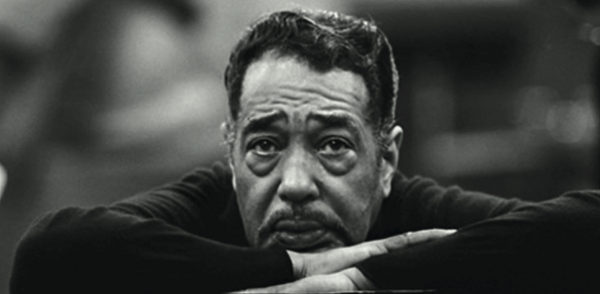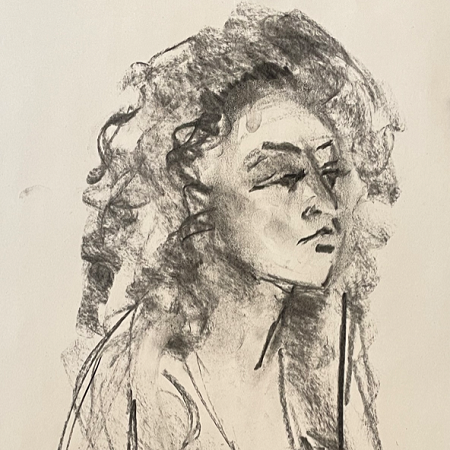THIS WEEK’S MUSE

DUKE ELLINGTON
“Jazz is the only unhampered, unhindered expression of complete freedom yet produced in this country.”
Edward Kennedy “Duke” Ellington was an American composer, pianist, and orchestra leader. He was a pivotal figure in the history of jazz, and in the history of twentieth-century music.
Born in 1899 in Washington, D.C., music was in the blood of the young Ellington from an early age, beginning piano lessons at just seven years old. Early jobs—selling peanuts at baseball games, a soda jerk at a local café, a sign painter—helped finance his first steps in music. He was writing songs at fourteen, and he was putting his first bands together by eighteen.
After making a musical name for himself in the clubs and bars of D.C., Ellington moved to New York City and immersed himself in the rising ‘Harlem scene.’ An intellectual and cultural revival of African American music, dance, art, fashion, literature, theater, and politics had been bubbling up as Ellington’s fame rose. The new dance crazes, sounds, ideas, personal expression, and opportunities were at his fingertips. By luck and design, he found himself at the very center of the Jazz Age.
Ellington expanded his jazz band to take up a residency at the legendary Cotton Club in the late 1920s. Albums, films, and live tours followed, and the success continued for the next forty-plus years. He was always innovative, shifting and moving with the new trends in the 1950s and ’60s jazz, even dabbling in the Avant Gard when fashion demanded. He continued to write and perform right up to his death in 1974.
Rather than leading his band like a traditional conductor, Ellington typically led from the piano, using musical cues and visual gestures. He maintained control over his players—and the music—with a combination of charm, humor, flattery, and astute psychology. And the audiences loved it.
From its earliest incarnations, the orchestra for Ellington was an ideal platform for his musical ambitions. With a wide range of skilled and varied players at his fingertips, Ellington could take his compositions into unexpected territories and innovative directions. The orchestra was the ultimate ‘blank page’ where anything and everything was possible. That translated to Ellington as the freedom to be whatever he wanted, and with that freedom came innovation and immense creativity.
“If jazz means anything, it is freedom of expression.”
When scoring parts for the other instruments, he often conceived them in piano chords, indicating specific notes to be blown regardless of whether the musical intervals or sequences are convenient for that instrument to execute. As a result, his orchestra, each man brilliant on his chosen instrument, would play unorthodox scores while naturally translating sound and style to their instrument. This gave Ellington’s compositions an innovative edge, and the band’s performances a unique sound.
“Art is dangerous. It is one of the attractions: when it ceases to be dangerous you don’t want it.”
His legacy is hard to quantify, not least because the delivery and consumption of music have changed so much since his death. The great orchestras are largely gone, as are the places they once played. But despite this, such was his talent, and a line in the musical sand marks him as one of the great musical innovators of jazz or any other genre. It’s a testament to his skill that so much of his music is still known and loved today.
“A problem is a chance for you to do your best.”
HAPPENING
Saturday, July 30, from 10am–3pm
Drawing Bootcamp
With Susan Overstreet

Free-form still life arrangements without caring about the outcome!
$70 – Member, $80 – Non-Member
DETAILS & TICKETS
